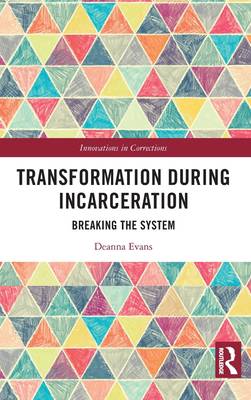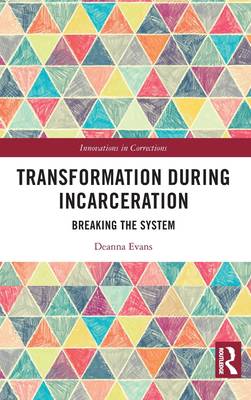
- Retrait gratuit dans votre magasin Club
- 7.000.000 titres dans notre catalogue
- Payer en toute sécurité
- Toujours un magasin près de chez vous
- Retrait gratuit dans votre magasin Club
- 7.000.0000 titres dans notre catalogue
- Payer en toute sécurité
- Toujours un magasin près de chez vous
Description
This book moves beyond rehabilitative strategies in corrections to engage a more holistic understanding of the communal experiences behind prison walls. Behavioral deficit models dominate the field of corrections theory: rehabilitation, retribution, deterrence, incapacitation, and restoration. Even humanist conceptions of evolution are described as change, transformation, correction, improvement, a lexicon fixed on a distorted view of humanity. What has not been explored is the resilience and human flourishing despite the systemic injustice and dehumanization of prison.
What innovations are possible with a change of perspective and focus on self-identified stories of transformation where transformation is redefined from the lens of self-efficacy and power to change one's world? Where we rebuild the lexicon from a humanizing philosophy, and our starting point shifts to the inherent goodness of humanity and the potential to evolve beyond limiting narratives and social constructs? Where we empower those with the most to lose through our feeble attempts as outsiders to reform prison paradigms? Where religious narratives of human depravity give way to trauma-informed praxis and neuroscience? Where community and relational equity replace solitary confinement and isolation? Using an indigenous research methodology analyzing memoirs of formerly incarcerated people, the book contextualizes and identifies the role of community and shared emotional connection among incarcerated people.
This book is essential for scholars, practitioners, and students concerned with the transformative journey among the incarcerated population and for anyone engaged in higher education in prison or interested in constructive change of the prison system.
Spécifications
Parties prenantes
- Auteur(s) :
- Editeur:
Contenu
- Nombre de pages :
- 144
- Langue:
- Anglais
- Collection :
Caractéristiques
- EAN:
- 9781032450025
- Date de parution :
- 02-04-24
- Format:
- Livre relié
- Format numérique:
- Genaaid
- Dimensions :
- 152 mm x 229 mm
- Poids :
- 362 g

Les avis
Nous publions uniquement les avis qui respectent les conditions requises. Consultez nos conditions pour les avis.






